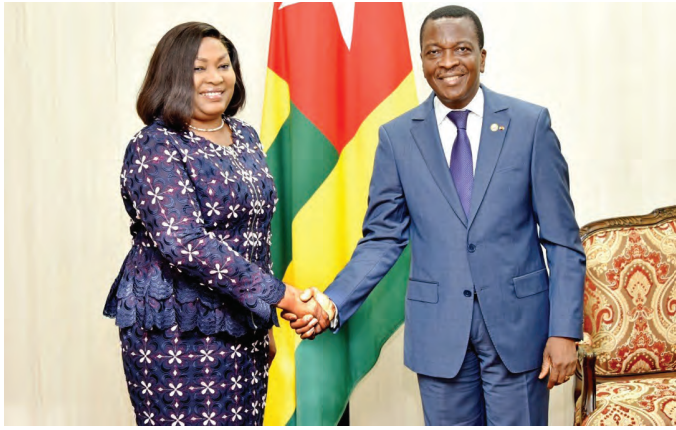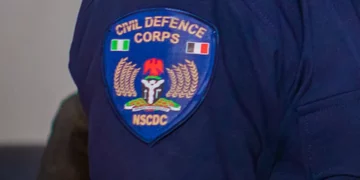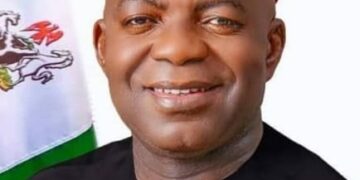West African sub-region is grappling with deficits of funds to tackle the myriad of the crises confronting most member countries of the Economic Community of West African States (ECOWAS) predicated on increasing paucity of funds for a robust budget.
The challenge of shortfalls in the ECOWAS Community levy due the inability or failure of some member countries to remit the funds has hampered the development initiatives of the sub region and there might be more difficulties due to the dwindling economic fortunes of member countries in recent years.
This was the concern of Members of the ECOWAS Parliament who decried the increasing shortfalls in the remittances of the community levy by some member countries of the regional bloc on Thursday during the closing ceremony of the two-day induction session for members of the ECOWAS Parliament, presided over by the Speaker, Rt. Hon. Memounatou Ibrahima, which is part of the ongoing 2024 Third Extraordinary Session of the 6th Legislature in Lome, Togo.
The Director of Administration and Finance of the ECOWAS Parliament(DAF) Anna Jagne, said in her presentation that 2024 is the worst year in recent history in terms of the compliance by some member countries of ECOWAS on remittances of the levy, stressing that it has serious implications on the operations of the regional bloc.
Article 40 of the Financial Regulations of ECOWAS outlines the Community Levy as the principal source of revenue for the Community. The levy is a 0.5% tax imposed on goods from non-ECOWAS Member States. It constitutes between 70 and 90% of the ECOWAS budget.
Other sources of income include voluntary contributions and donations, external funds or development partner funding and other sources including interest on investments.
In the case of the ECOWAS parliament, income is mainly generated from Community Levy receipts and other sources including interest on investment such as income from accounts and income from sale and rent.
Speaking to reporters on the sidelines of the induction session about the troubling development, Nigerian Member of Parliament, Awaji Inombek Abiante, attributed the difficulty in remitting the levy by some West African countries to the dwindling economic fortunes of the states and paucity of funds amid pressing domestic needs.
He said “The issue of community levy is a direct relationship to the state of our economies. It is only when you have enough that the purchasing power will increase. But if you have an economy that is heading south; of course everything will head south.
“And some member states might now begin to find challenging needs for whatever resources they have, making it difficult for appropriate and timely releases and remittances even when they have collected because there are other more exigent demands on them.
“So the best approach on issues of this nature will be to continually strengthen our economic base in the region. But as long as our economies are moving southwards, contributing to the purse will be challenging and the demand for funds will keep on increasing.”
Also speaking to reporters, Member of Parliament from The Gambia, Darbo Alhagie, said that more pressure should be mounted on countries that defaulted in payment.
“We need to know those that have defaulted and ensure that at the level of parliament we can encourage our countries to pay the levy otherwise the implication will be dire on the operations of the Community.”
“If countries are not paying their levy, it is going to affect the operations of the Parliament and other ECOWAS institutions in general,” he said.
It has become incumbent on the regional bloc to put pressure on its defaulting members to improve on their remittances of the levy without which the initiatives of the bloc will continue to suffer setbacks.
The regional bloc can explore other avenues for funding by taking advantage of platforms such as the Forum for China Africa Cooperation (FOCAC) the Belt and Roads Initiative (BRI), which is also a Chinese initiative to boost investment in the world with billions of dollars already earmarked for infrastructure, investment, trade, agriculture and green economy, covering projects for the aviation, on the land and in the sea for Africa.
The West African bloc can also push for the actualisation and implementation of the United Nations Secretary-General’s SDGs stimulus proposal, which includes a provision of US$500 billion per year for the Global South. This might, when actualized, will go a long way in ameliorating the current challenge of poor funding in the region.











